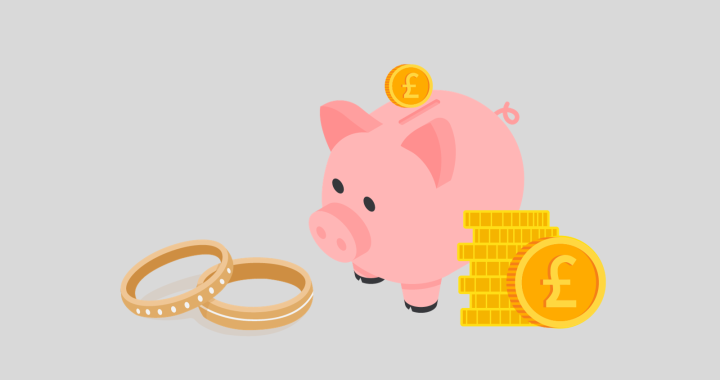The National Insurance Rise – What’s Happened?
From 6 April 2025, Chancellor Rachel Reeves introduced a 1.2% increase in Employer National Insurance Contributions (NICs) on all salaries above £5,000. The government says this step is needed to stabilise public finances. But many Scottish business owners question its fairness—especially with no matching increase in devolved support.
The immediate result is simple but significant: it now costs more to employ people in Scotland. For small and medium-sized enterprises (SMEs), which make up a large share of Scotland’s business community, the pressure is particularly acute.
What the 2025 Employer NIC Increase Means for Scottish Employers
Higher Payroll Costs Per Employee
This NIC increase means that any salary over £5,000 now attracts an additional 1.2% in employer NICs. For example, if you employ someone earning £35,000 per year, your NIC liability on that one salary could increase by more than £350 annually. This is not limited to new hires — it applies to your entire workforce, across all departments and roles.
Margins are already tight in sectors like hospitality, construction, and retail. This NIC increase could make some roles financially unsustainable.
Increased Pressure on Short-Term Cash Flow
Employer NICs are paid monthly or quarterly along with PAYE liabilities. That means this rise puts immediate pressure on your cash flow, not just your annual accounts. Any pre-existing plans for capital investment, hiring, or business expansion may now need to be paused or reviewed.
For many SMEs, this change creates the unwelcome scenario of having to choose between long-term strategic growth and maintaining day-to-day payroll obligations.
Five Practical Ways to Offset the NIC Increase
Rather than scaling back your workforce, here are five accountant-approved strategies that can help manage the cost increase without sacrificing growth or jobs.
Use the Employment Allowance
The Employment Allowance is a UK-wide government relief that allows eligible employers to reduce their annual employer NICs bill by up to £5,000 per tax year. This relief is designed to ease the burden of employment costs, particularly for smaller businesses.
Once your business is registered and eligible, the allowance can be automatically applied through your payroll system. Despite being available for several years, many businesses still either fail to claim it or assume incorrectly that they are ineligible.
We strongly encourage reviewing your eligibility — especially if your staffing levels, payroll thresholds, or business structure have changed.
You can check your eligibility and learn more here:
Employment Allowance: Check if you’re eligible – GOV.UK
Introduce Salary Sacrifice Schemes
A salary sacrifice arrangement enables employees to voluntarily reduce their gross salary in exchange for non-cash benefits such as enhanced pension contributions, cycle-to-work schemes, or electric vehicle leasing.
These schemes can lead to NIC savings for both the employer and employee. However, they must be carefully designed to ensure no employee’s adjusted salary drops below the National Minimum Wage.
For best results — and to remain compliant with HMRC requirements — such schemes should be implemented in consultation with your accountant or payroll advisor.
Use Contractors or Freelancers – With Caution
In some cases, businesses can reduce their NIC liabilities by engaging self-employed contractors or freelancers, rather than hiring new full-time staff. When a contractor is genuinely self-employed and working outside IR35 rules, the business is not required to pay employer NICs or the Apprenticeship Levy.
However, this only applies if the working relationship is clearly independent. Under the IR35 off-payroll working rules, if a contractor is deemed to be operating like an employee, the business (or the agency) becomes liable for NICs and must operate PAYE.
Careful status assessment is essential — using HMRC’s CEST tool or professional guidance — before relying on this strategy.
One of the most effective ways to reduce employment costs — without reducing your team — is by embracing automation. Many businesses still rely on staff for repetitive manual tasks that could easily be handled by affordable software tools.
Whether it’s managing staff rotas, processing invoices, generating reports, sending customer communications, handling inventory, or onboarding new team members — automating these tasks can save hours each week. That means your existing team can focus on higher-value work, such as customer service, sales, or operational improvements.
Smart use of automation can reduce your dependency on extra admin support, helping you control Employer NIC costs over time. Importantly, many automation tools — including HR software, workflow platforms, or scheduling systems — are fully deductible as business expenses for tax purposes.
If your business is growing but you’re not ready to hire more staff, now is a great time to review which processes could be automated instead.
Reassess Your Payroll and Remuneration Strategy
Now is an ideal time to revisit your payroll structure with your accountant. There may be more tax-efficient ways to reward team members, such as structured bonuses, non-cash benefits under HMRC thresholds, or director dividends (where appropriate).
For owner-managed businesses, this is especially relevant — as small tweaks in remuneration structure could lead to significant NIC savings over the year.









